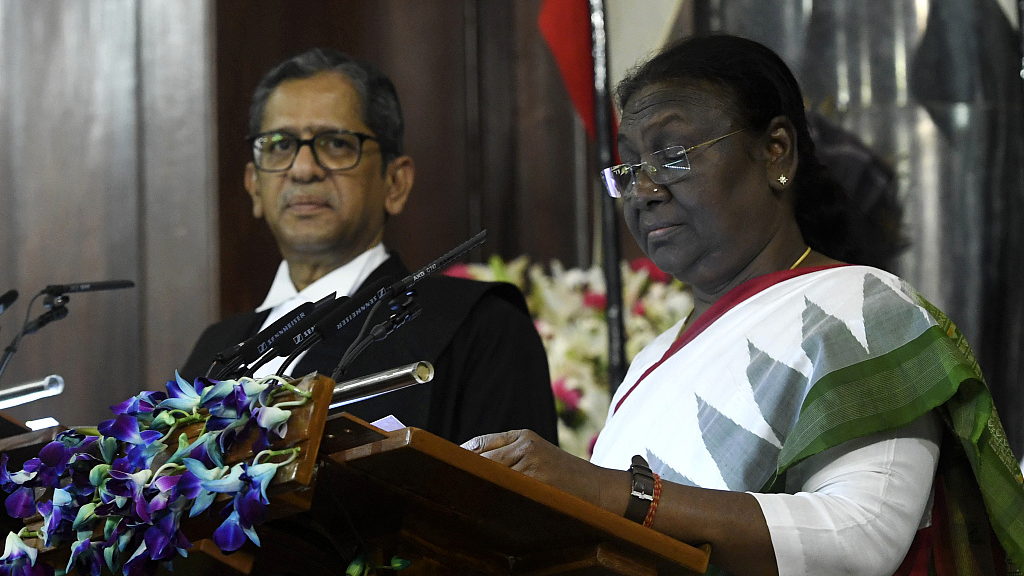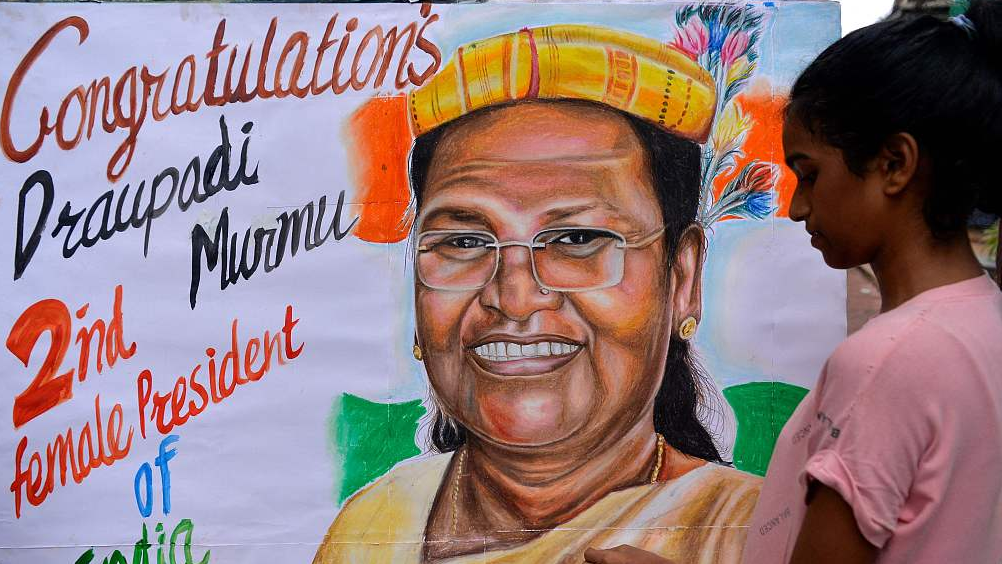
India's new president Droupadi Murmu (right) is taking oath of office next to Chief Justice of India N V Ramana (left) in New Delhi, India, July 25, 2022. /CFP
India's new president Droupadi Murmu (right) is taking oath of office next to Chief Justice of India N V Ramana (left) in New Delhi, India, July 25, 2022. /CFP
Droupadi Murmu was sworn in as the president of India on Monday in the Central Hall of Parliament in New Delhi.
Murmu, 64, becomes India's second female president and the first person from one of the country's tribal communities to take up the country's top constitutional post.
The former school teacher and state governor was elected to the position last week with 64 percent of the vote by members of India's parliament and state assemblies.
Murmu, who is from the Santhal tribe and was born in eastern Odisha state, paid her respects before her inauguration at a memorial dedicated to India's independence hero Mahatma Gandhi in New Delhi.
"I started my life journey from a small tribal village," Murmu said after taking the oath of office in Parliament.
"From the background I come from, it was like a dream for me to even get elementary education," she added.
"But despite many obstacles, my resolve remained strong and I became the first daughter from my village to go to college."

An art school student makes the final touches on a painting of Droupadi Murmu, in Mumbai, India, July 21, 2022. /CFP
An art school student makes the final touches on a painting of Droupadi Murmu, in Mumbai, India, July 21, 2022. /CFP
"Her assuming the Presidency is a watershed moment for India especially for the poor, marginalized and downtrodden," Indian Prime Minister Narendra Modi said on Twitter after Murmu's address.
Murmu said her election would give hope to those left behind by India's recent economic growth.
"It is a matter of great satisfaction to me that those who have been deprived for centuries, who have been away from the benefits of development... are seeing their reflection in me," she said.
India's prime minister wields executive power, but the president can send back some parliamentary bills for reconsideration and also plays a guiding role in the process of forming governments.
Murmu succeeds Ram Nath Kovind, whose term ended on July 24.
(With input from AFP)

